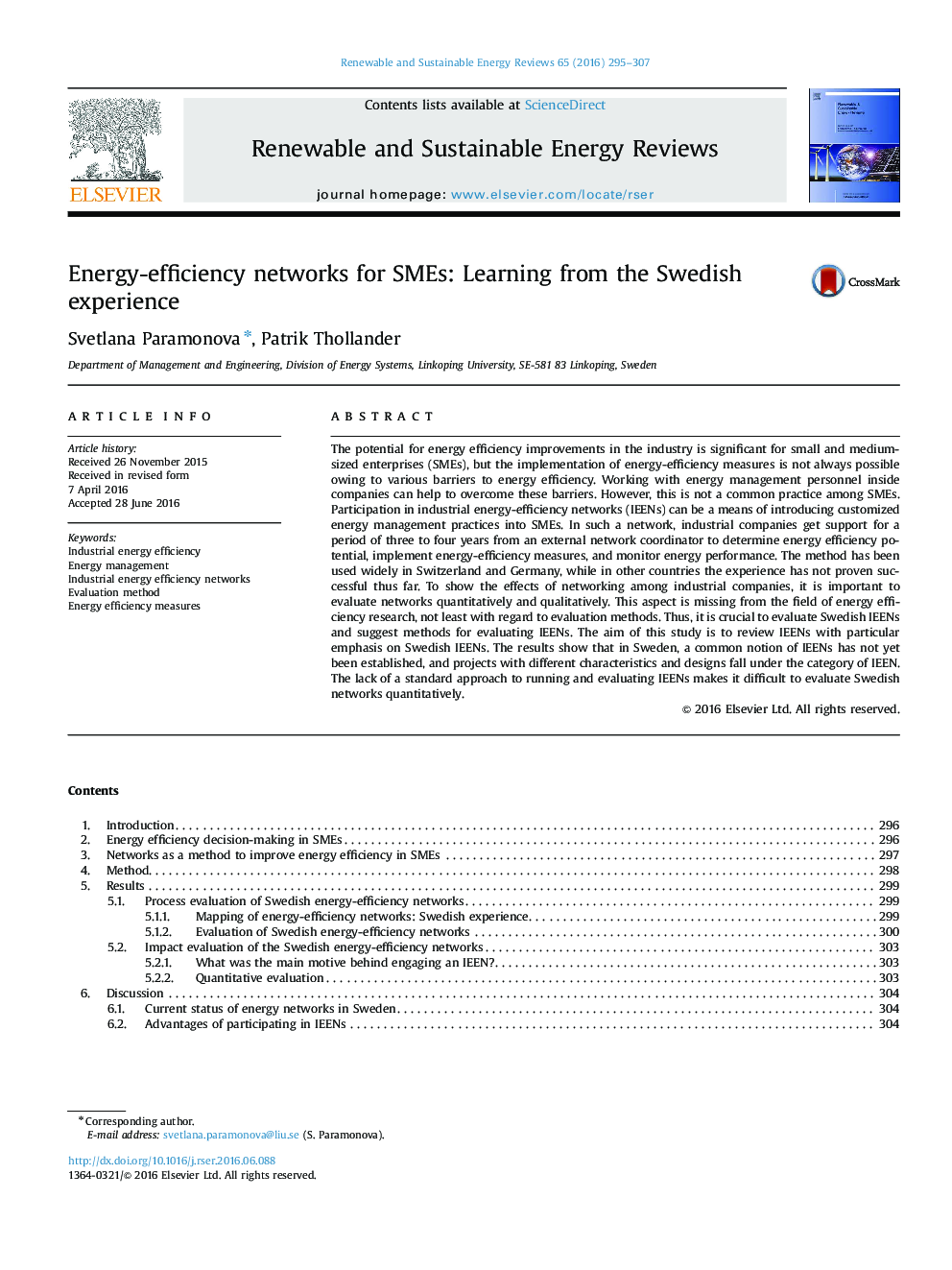| Article ID | Journal | Published Year | Pages | File Type |
|---|---|---|---|---|
| 8112755 | Renewable and Sustainable Energy Reviews | 2016 | 13 Pages |
Abstract
The potential for energy efficiency improvements in the industry is significant for small and medium-sized enterprises (SMEs), but the implementation of energy-efficiency measures is not always possible owing to various barriers to energy efficiency. Working with energy management personnel inside companies can help to overcome these barriers. However, this is not a common practice among SMEs. Participation in industrial energy-efficiency networks (IEENs) can be a means of introducing customized energy management practices into SMEs. In such a network, industrial companies get support for a period of three to four years from an external network coordinator to determine energy efficiency potential, implement energy-efficiency measures, and monitor energy performance. The method has been used widely in Switzerland and Germany, while in other countries the experience has not proven successful thus far. To show the effects of networking among industrial companies, it is important to evaluate networks quantitatively and qualitatively. This aspect is missing from the field of energy efficiency research, not least with regard to evaluation methods. Thus, it is crucial to evaluate Swedish IEENs and suggest methods for evaluating IEENs. The aim of this study is to review IEENs with particular emphasis on Swedish IEENs. The results show that in Sweden, a common notion of IEENs has not yet been established, and projects with different characteristics and designs fall under the category of IEEN. The lack of a standard approach to running and evaluating IEENs makes it difficult to evaluate Swedish networks quantitatively.
Related Topics
Physical Sciences and Engineering
Energy
Renewable Energy, Sustainability and the Environment
Authors
Svetlana Paramonova, Patrik Thollander,
